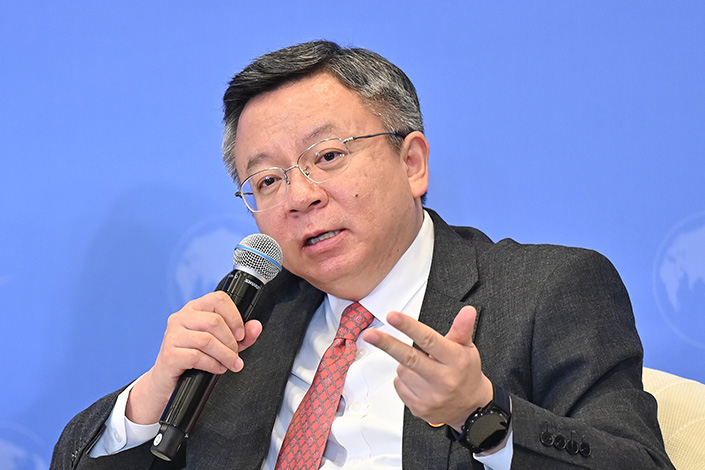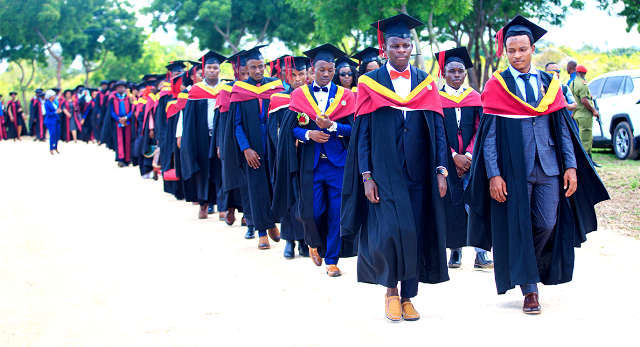
By TZBN Staff
The International Monetary Fund (IMF) has asked the Tanzania Government to enhance revenue mobilization, and to especially use that ‘fiscal space’ for human capital development.
A similar theme was echoed at the conclusion of a two-day meeting in Dar es Salaam, Tanzania, where government leaders from 43 African countries issued a joint declaration calling for increased spending on human capital.
The ‘Africa Human Capital Heads of State Summit’ was convened jointly by the Tanzanian government and the World Bank. The joint statement, dubbed as “The Dar es Salaam Declaration”, was described as call to action at the highest level to the importance of investing in Africa’s people as a core driver of innovation, productivity, resilience, and growth on the continent.
On the other hand Mr.Bo Li, Deputy Managing Director of the IMF, issued a statement in Dar es Salaam at the conclusion of his visit to Tanzania in early August 2023, advising the Government in the country to raise funds for social spending.
“I encouraged the authorities to enhance domestic revenue mobilization through tax reforms, which will help create the fiscal space needed to finance social spending and priority investment. In particular, scaling-up investment in human capital through increased spending on education and health,” Bo Li said, adding that this “will help close gaps in human capital”.

He also commended both the private sector and the Tanzania Government for taking commendable steps amid troubled global economic conditions.
“I commended the authorities’ commitment to preserving Tanzania’s macroeconomic stability in a challenging global environment. The authorities’ swift policy response helped contain inflation and safeguard the economy against spillovers from the war in Ukraine.
“I welcomed the authorities’ continued commitment to their reform program supported by the IMF’s key pillars of the reform program [which] include creating fiscal space to allow for much needed social spending and high-impact public investment, enhancing the monetary policy and financial supervision frameworks, strengthening governance, and advancing structural reforms. In addition to safeguarding macroeconomic stability, the reform program aims to promote strong, sustainable and inclusive growth”.
He added: “I was encouraged to witness the energy and vibrancy of the Tanzanian economy during my engagement with representatives of the private sector, civil society and development partners. I was impressed by a local environmental NGO’s dedication and creativity to promote sustainable living, as well as the entrepreneurship and dynamism of traditional wood carvers. If supported by enabling business environment and access to finance, such entrepreneurs could become the source of growth and job creation for the Tanzanian economy”.
Meanwhile, African leaders from 43 countries have agreed to step up efforts to strengthen the quantity, efficiency, and impact of investments in their people in the newly announced ‘Dar es Salaam Declaration’.
Sub-Saharan Africa scores the lowest of all the world’s regions on the World Bank’s Human Capital Index (HCI) yet faces a youth bulge that could be leveraged to supercharge African economies if the right policies and investments are implemented today.
The leaders met for two days at the inaugural Africa Human Capital Heads of State Summit convened jointly by the Tanzanian government and the World Bank. The summit was a call to action at the highest level to the importance of investing in Africa’s people as a core driver of innovation, productivity, resilience, and growth on the continent. It also underscored the urgency of addressing Africa’s young and rapidly growing population, and the need to create productive employment and functioning markets that can make the most of these changing demographics.
Africa’s Human Capital Index (HCI) score of 0.40 means the region is only reaching 40% of its productivity potential. Many children and young people in Sub-Saharan Africa face significant barriers to realizing their potential due to insufficient access to and poor quality of critical services such as health and education. Today, about 89% of 10-year-olds are unable to read and understand a simple text. These challenges have been further exacerbated by various crises including pandemics such as COVID-19, conflict, and climate change-induced droughts and floods.
The Dar es Salaam Declaration constitutes tangible financial and policy commitments made by African leaders to prioritize investing in people with a focus on reaping a demographic dividend. The declaration recognizes that Africa’s most important asset is its people and there is no time to waste.



